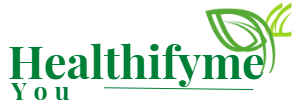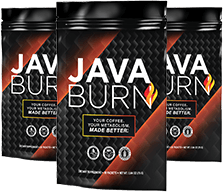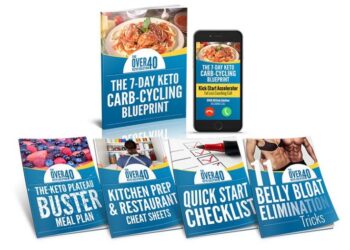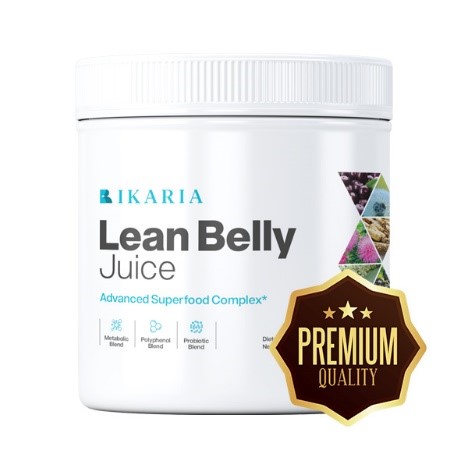You know that some of the necessary jobs you may have as a brand new mother or father is ensuring your baby is fed. But selecting easy methods to feed them, in addition to realizing how a lot and the way typically your baby ought to eat, could really feel slightly overwhelming at instances.
It’s quite common for fogeys to have loads of questions on feeding their new baby (and through the primary yr of their life). With the assistance of our crew of children’ health specialists and lactation consultants, we go over feeding strategies for infants, together with breastfeeding, system feeding and every little thing in between. We’ll additionally speak about how a lot and the way typically your baby ought to eat, and newborn feeding tips so you’ll be able to really feel assured you’re offering your baby with the nutrition they want.
Whether you select to completely breastfeed your baby, use a mix of system and human breast milk, or completely pump, there are a number of other ways to feed your baby.
Breastfeeding (chest feeding)
Breastfeeding (or chest feeding or nursing) is if you present milk to your baby instantly from your breast. Parents typically select to breastfeed for a number of causes. Research exhibits there are a number of breastfeeding health advantages for infants and oldsters, together with safety for your baby from sure sicknesses, and lowering your danger of sure cancers. While it is beneficial to breast or chest feed if doable, due to the potential health advantages, there are additionally a number of necessary causes dad and mom select to not, together with medical circumstances, work or dwelling challenges, or private choice.
Exclusive pumping and bottle feeding
Exclusive pumping is if you categorical milk from your breasts utilizing an electrical or guide breast pump, and feed your baby breast milk from a bottle. Typically, you pump as typically as your baby would nurse, each 2-3 hours. Emptying every breast could take round 15-Half-hour or extra relying on your pump, your provide and different components. Establishing a pumping schedule is necessary for telling your body how a lot milk to supply for your baby, in addition to avoiding clogged milk ducts or breast infections.
There are a number of causes individuals could select to completely pump. For some, challenges with getting a great latch generally is a large issue of their determination. For others, it might be as a result of they’re returning to work and cannot be with their baby to breastfeed on demand. For some, they could merely want pumping to nursing.
Baby system
Formula intently resembles breast milk, with vitamins your baby wants. Most formulation are made with cow’s milk, however should you suppose your baby is allergic or delicate to dairy, speak to your physician for different choices, like soy-based formulation.
There are additionally hydrolyzed protein formulation the place proteins from dairy or soy are damaged down even additional than conventional or soy formulation. This kind of system is less complicated to digest if your baby is allergic or delicate to dairy and soy. And typically, untimely infants are placed on specialised system primarily based on their wants.
Donor breast milk
Donor breast milk is simply because it sounds – breast milk donated from one other lactating person, nevertheless it’s been through a radical testing and sterilization course of. In the short-term, donor milk generally is a nice choice for fogeys who have to complement their baby till their very own milk provide begins to extend.
Most hospitals provide donor breast milk throughout your keep, and your youngster’s physician can also write a prescription for a neighborhood milk financial institution. For instance, dad and mom can stroll into Methodist Hospital Health and Care Store in St. Louis Park, MN and buy a restricted quantity of breast milk with a prescription from their physician.
In the long-term, breast milk could also be obtainable for buy from a milk financial institution – however this may be very costly. The quantity you’re capable of get can also range as a result of most milk banks present donated pasteurized human milk to infants with medical wants first.
Breast milk sources to keep away from
Milk sharing – the place a person offers their breast milk to a toddler that’s not theirs – or shopping for breast milk on-line from strangers shouldn’t be beneficial by medical professionals or the U.S. Food and Drug (*12*). Both of those choices could pose important health and security dangers.
If the person sharing milk with you has an an infection, it may be handed on to your baby. Also, since buying milk on-line isn’t regulated, chances are you’ll not know precisely what’s in it.
Combination feeding
Many dad and mom select to feed their baby utilizing a mix of strategies:
- Breastfeeding and pumping – Many dad and mom who breastfeed additionally pump. Early on, pumping along with breastfeeding will help improve your milk provide. And afterward, it will probably assist maintain your provide. This can be quite common for these returning to work. This permits them to proceed to offer breast milk for his or her baby and likewise keep a breastfeeding relationship.
- Breastfeeding and supplementing with system (or donor milk) – Some dad and mom could select to breastfeed and complement as a result of it’s extra handy to their schedules or as a result of they’ve a decrease provide of breast milk. If provide is a priority for individuals who breastfeed, dad and mom can also pump at sure factors through the day to stimulate elevated manufacturing.
- Exclusive pumping and supplementing with system or donor milk – Similar to those that breastfeed and complement, those that completely pump can also complement their youngster with system or human donor milk.
How a lot ought to your baby eat and the way typically?
Pediatricians and different youngsters’ health specialists suggest that infants solely eat breast milk or system for the primary 4 months of their lives, at which level infants might be launched to stable meals along with breast milk or system.
As your youngster will get older, their dependence on milk or system will reduce as they soak up extra energy from stable food. However, it’s beneficial to proceed breast milk or system for the primary 12 months.
How a lot breast milk ought to a baby eat?
For those that breastfeed completely, it may be onerous to know precisely how a lot breast milk your youngster is eating throughout feedings. And for individuals who pump, it may be onerous to know precisely how a lot you need to be bottle feeding. Most breast milk-fed infants will eat between 2-5 ounces per feeding relying on their age.
The composition of breast milk modifications as infants will get older, so the quantity of breast milk a baby eats doesn’t improve as a lot as a formula-fed baby.
- Newborn – Newborn infants’ stomachs are tiny (concerning the measurement of a peanut M&M after they’re first born). So, for these first few days they’ll solely take slightly bit at a time. But these tiny tummies must be refilled frequently – usually each 2-3 hours. The first food your body will produce is colostrum, which is full of antibodies and white blood cells. During the primary few days and weeks, you’ll be studying about your baby. Watch for starvation cues like crying, rooting at your breast and opening their mouth. By the top of their first month, the quantity they eat ought to improve.
- 1-6 months old – During this time, the quantity your baby eats at every feeding ought to improve from round 2-3 ounces at a time, to between 3-5 ounces per feeding. No baby is similar, nevertheless. The quantity they eat is dependent upon their body weight.
- 6-12 months old – While you’ll start introducing stable meals at round 4 months, breast milk will nonetheless be the principle supply of vitamins till your baby’s first birthday. As they discover ways to eat solids, they’ll most likely proceed to eat between 3-5 ounces of breast milk throughout every feeding.
- 12 months old and past – After 12 months, stable meals grow to be your baby’s important supply of nutrition as a result of they’ve entered a brand new stage the place they want extra energy. However, there’s no set stopping level for breastfeeding. Some individuals select to breastfeed previous 2 years old – all of it is dependent upon what works finest for you and your baby.
Breastfed baby’s feeding schedule
Early on, it might be troublesome to determine a set feeding schedule should you’re breastfeeding or chest feeding. That’s as a result of there could also be instances your baby desires to cluster feed – or eat a minimum of each hour – to maintain topping off their abdomen or for consolation. This is commonest within the night however can occur anytime all through the day.
An instance of a breast milk-fed baby’s schedule for the primary yr can appear to be this:
| How typically ought to my breastfed baby eat? | ||
|---|---|---|
| Age of baby | Frequency of feedings | Number of feedings per day |
| 0-1 month | Every 2-3 hours | 8-12 instances per day |
| 1-3 months | Every 3-4 hours | 6-8 instances per day |
| 4-6 months | Every 4-5 hours | 5-7 instances per day |
| 6-8 months | Every 5-6 hours | 4-6 instances per day |
| 9-12 months | Every 6-7 hours | 3-5 instances per day |
How a lot system ought to your baby eat?
It’s straightforward to trace how a lot a formula-fed baby eats, as bottles are ready in response to ounces. It’s necessary to not overfeed, so be sure you look ahead to starvation cues and don’t drive your baby to complete their bottle in the event that they point out they’re full.
- Newborn – Since newborn stomachs are very small, the quantity of system a baby could eat within the first couple days will likely be about half an oz., finally rising to 1-2 ounces per feeding in these first couple weeks, after which 2-3 ounces till they’re round 2 months old. While you’ll possible be feeding on a schedule (which we’ll cowl beneath), you’ll nonetheless be waiting for starvation cues, like crying or opening their mouths, so it’s okay to feed on demand.
- 2 months old – Offer your baby 3-6 ounces per feeding, for a complete of 18-24 ounces per day.
- 3-4 months old – Feed your baby 4-7 ounces at a time, for a complete of 24-32 ounces per day. Your physician can also suggest beginning stable meals, however system will likely be your baby’s important supply of nutrition.
- 5-6 months old – Typically at this age, infants drink 6-8 ounces per feeding, for a complete of 24-32 ounces per day. According to the American Academy of Pediatrics (AAP), infants 6 months old and youthful should not have any greater than 32 ounces of system per day.
- 6-12 months old – At this level, your baby will possible be often eating stable meals, however will nonetheless want system. Depending on what number of solids they eat and their age, your baby could drink between 24-32 ounces of system per day.
- 12 months old and past – Your baby can eat stable meals at common mealtimes, in addition to cow’s milk or a milk different from a cup, slightly than a bottle. Depending on your baby, they possible received’t want system, however speak to your pediatrician in case you have considerations about how a lot your baby is eating.
Formula-fed (or breast milk, bottle-fed) baby’s eating schedule
For those that feed their baby system (or bottle feed their baby breast milk), settling right into a feeding schedule could take rather less time than those that breastfeed. A bottle-fed baby’s feeding schedule could look one thing like this:
| How typically ought to my bottle-fed baby eat? | ||
|---|---|---|
| Age of baby | Frequency of feedings | Number of feedings per day |
| 0-1 month | Every 2-3 hours | 8-12 instances per day |
| 1-3 months | Every 3-4 hours | 6-8 instances per day |
| 4-6 months | Every 4-6 hours | 4-6 instances per day |
| 6-8 months | Every 5 hours | 5 instances per day |
| 9-12 months | Every 6-8 hours | 3-5 instances per day |
Signs your baby isn’t eating sufficient
While ensuring your baby is eating sufficient will likely be high of thoughts for months and even years, these first few weeks are probably the most essential to their health and improvement.
Weight achieve is without doubt one of the greatest indicators of whether or not a baby is getting sufficient to eat. Typically, infants achieve round 1 ounce a day for the primary few months. Other indicators that infants is probably not getting sufficient to eat is that they’re sleeping longer than normal or performing sluggish, or baby isn’t producing poop, or their urine shouldn’t be pale in coloration.
If you’re breastfeeding or chest feeding, very brief or very lengthy feeds may also be an indication that they’re both giving up or attempting very onerous to switch milk from your breasts. If you’re system feeding and your baby doesn’t need to take a bottle, it might be that their bottle’s nipple is just too large, or the circulate of system is just too sluggish or too quick.
If you’re breastfeeding or pumping, and anxious your baby isn’t getting sufficient to eat, make an appointment with a lactation guide or your baby’s clinician. A lactation guide and clinician can present a spread of training and help companies. If you’re system feeding, make an appointment with your baby’s physician.
Newborn feeding tips
Feeding a baby isn’t at all times as simple because it appears. Whether you’re new to parenting or have a number of youngsters, each baby is completely different, and your baby may want slightly assist to nurse or take a bottle.
- Feed your baby on their cues – Newborn infants develop and alter shortly. And when you’ll finally get to a extra predictable feeding schedule, for these first couple months baby will make the schedule. Learning their early starvation cues, like an open mouth or rooting, will help be sure that your baby is getting what they want, after they want it.
- Talk to your baby’s physician about utilizing vitamin D drops should you’re breastfeeding – Vitamin D helps help healthy bone development in infants, and it’s typically beneficial as a complement for breast milk-fed infants. Babies who’re completely formula-fed don’t want the additional complement as toddler formulation have already got the required quantity of vitamin D. It’s necessary to speak with your youngster’s physician earlier than including any dietary supplements to your baby’s food regimen.
- Use feeding time for bonding time – Whether you’re breast or bottle feeding your baby, use the time as a possibility to construct your relationship with your baby. They could not have the ability to speak again, nevertheless it’s nonetheless soothing to listen to your voice.
- Take care of your self, too – It’s not straightforward being the mother or father of a newborn. Make certain you’re making time to take care of your personal bodily and psychological health, in addition to your baby.
Help and help for feeding your baby
Whether you select breastfeeding, system feeding or a mix of feeding strategies, know that your care crew is right here to help you.


















Discussion about this post